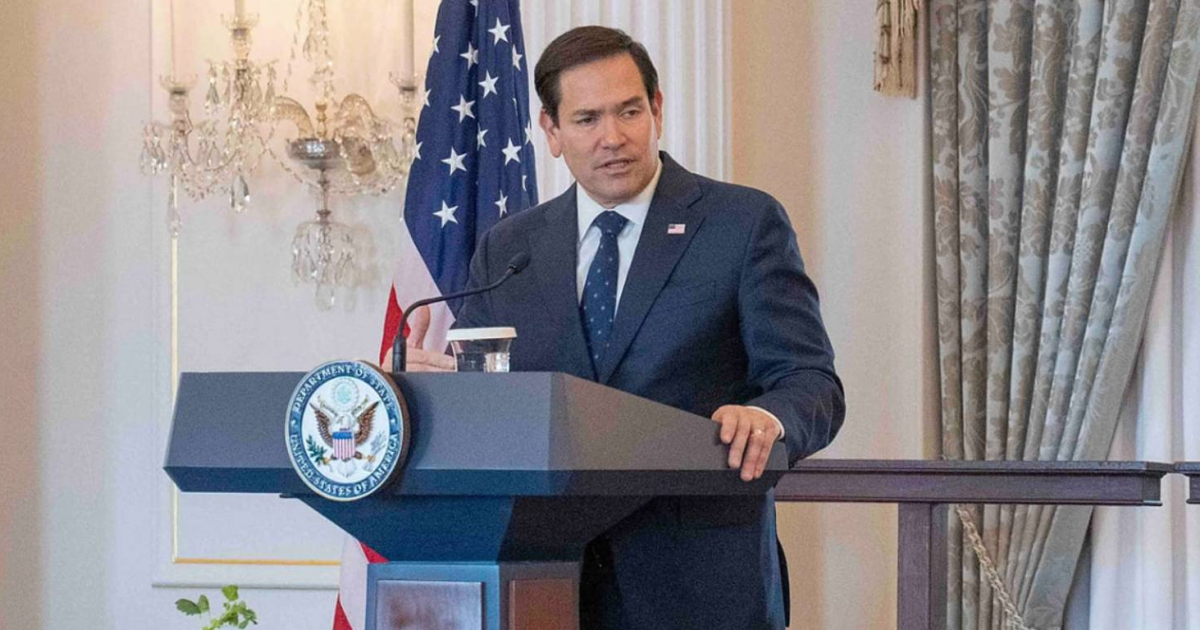On Wednesday, U.S. Secretary of State Marco Rubio emphasized that the circumstances in Cuba must not be overlooked. This statement came during a hearing before the House Appropriations Committee, where Rubio discussed the challenges posed by authoritarian regimes in the Western Hemisphere.
Rubio appeared to present the State Department's budget proposal for the upcoming fiscal year and addressed a question from Cuban-American Congressman Mario Díaz-Balart regarding the Trump administration's stance toward Latin America. "We simply cannot ignore what's happening there [in Cuba], because beyond the lack of democracy and similar issues, there are significant sources of instability," he told Martí Noticias.
The U.S. diplomatic strategy in the region, according to Rubio, is categorized into three groups. The first group consists of allied democracies—nations with elected governments and friendly ties with the U.S.—which, Rubio argues, should be rewarded for their alliances.
Next, he mentioned democracies that are not as friendly, with which Washington aims to avoid confrontation but that require a different approach than allies.
Lastly, Rubio identified autocracies such as Nicaragua, Venezuela, and Cuba as posing a structural threat to regional stability and human rights. He highlighted that between 11% and 12% of the Cuban population has fled the island over the past 18 months, describing this exodus as part of "one of the largest migrations in human history," alongside the departure of 8 million Venezuelans.
The Secretary of State also warned that the Venezuelan regime allows narcoterrorist groups to operate within its borders, threatening the stability of Colombia and other neighboring countries. In this context, he linked the Cuban crisis to a network of regional destabilization that requires strong responses from the U.S.
Rubio's remarks coincided with a State Department announcement of new sanctions against four Cuban officials—three judges and a prosecutor—implicated in the arbitrary detention of young activist Luis Robles Elizástigui, who was released in January 2025 after serving most of his sentence.
"Cuban regime officials who commit human rights violations are on notice," the State Department posted on its official X account. "Today, the U.S. holds three Cuban judges and a prosecutor accountable for their role in the arbitrary detention of Luis Robles. With this action, these individuals are now ineligible to enter our country."
A senior State Department official told Martí Noticias that this measure reinforces the Trump administration's policy of holding human rights violators in Cuba accountable.
Understanding U.S. Policy on Cuba and Regional Stability
Why is the situation in Cuba considered a source of instability?
The situation in Cuba is seen as unstable due to its authoritarian regime and the resulting mass migration, which impacts regional demographics and economic stability.
What measures has the U.S. taken against Cuban officials?
The U.S. has imposed sanctions on four Cuban officials for their involvement in the arbitrary detention of activist Luis Robles, making them ineligible to enter the United States.
How does the U.S. categorize its diplomatic relations in the Western Hemisphere?
The U.S. categorizes its diplomatic relations into three groups: allied democracies, less friendly democracies, and autocracies, each requiring a distinct approach.
What is the connection between the Venezuelan regime and regional instability?
The Venezuelan regime is linked to regional instability as it permits narcoterrorist groups to operate within its borders, posing threats to nearby countries like Colombia.
